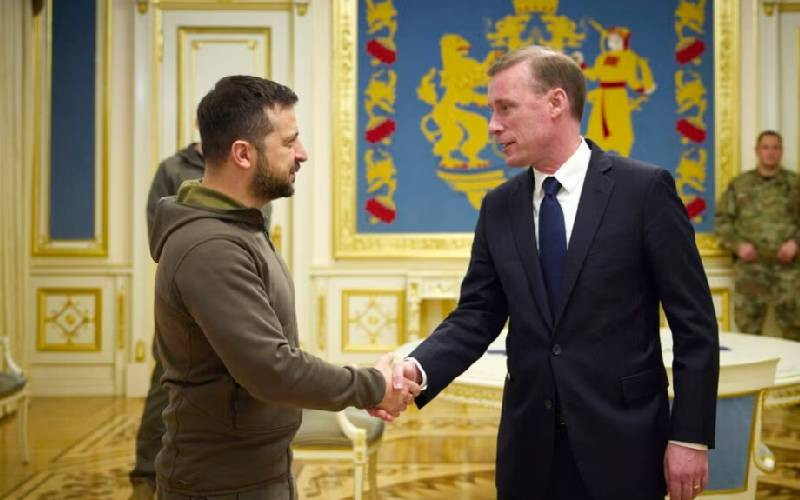
White House officials met Monday with leaders from the technology and defense industry sectors to discuss how to give Ukraine cutting-edge U.S. equipment such as unmanned aerial systems or demining gear and support its bid to defend itself from Russia, according to U.S. National Security Council aides.
Jake Sullivan, White House national security adviser, convened the five-hour meeting between industry experts and government officials on new technological capabilities that would allow Ukraine to detect and counter Russian unmanned aerial systems and demine large areas in Ukraine as President Joe Biden's more than $100 billion supplemental aid package, which includes support for Ukraine, languishes in Congress.